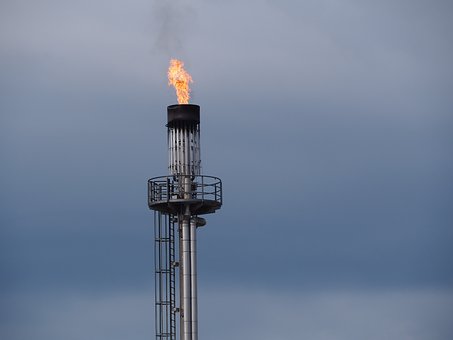U.S. Interior Proposes Updates to Gas Flaring Rule

The U.S. Department of the Interior’s Bureau of Land Management proposed a rule to address wastage of natural gas by flaring and venting during oil and gas production on federal and tribal lands. The main purpose of the rule is to increase efficiency by reducing the gas being wasted and expected to generate $39.8 million per year in terms of additional royalties from the operating and producing companies which will be used for the welfare of the taxpayers. This rule is drafted with alignment in the Biden Administration’s goal to provide clean energy and reduce carbon emission. This rule will also protect communities with significant economic benefits.
There has been a continual increase in the volume of vented and flared gas on public lands over the past decades. The average gas lost due to venting and flaring was at 11 billion cubic feet per year between the decade of 1990 and 2000. The loss rose to 44 billion cubic feet per year between 2010 and 2020. This volume of gas can serve approximately 675,000 domestic users. The proposed rule targets to modernize the outdated and ill-suited equipment currently deployed in the infrastructure. The rule would enforce the operators of federal and Indian oil and gas leases to take proactive measures to avoid the wastage of natural gas, and where it is unavoidable should be compensated through royalty payments.
The proposed rule emphasizes technology upgrades by implementing low-bleed pneumatic equipment along with vapor recovery from oil storage tanks. It would require operators to maintain a Leak Detection and Repair program in operational areas. The Waste Minimization Plan in the rule insists on planning future wells according to the available pipeline capacity and the bureau may delay or deny a permit for well drilling to avoid excessive gas flaring. The rule would help reduce gas flaring by providing a provision of time and volume bound royalty-free limits to the operators.
The proposed rule also highlights the revenue being lost due to outdated regulations. States including Colorado, Wyoming, Pennsylvania, and New Mexico are also taking steps to limit gas wastage from oil and gas operations.
EnerKnol Pulses like this one are powered by the EnerKnol Platform—the first comprehensive database for real-time energy policy tracking. Sign up for a free trial below for access to key regulatory data and deep industry insights across the energy spectrum.
ACCESS FREE TRIAL